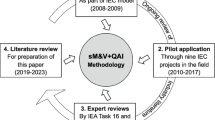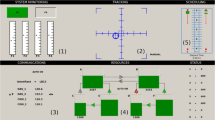Abstract
Collaborative embedded systems (CES) typically operate in highly dynamic contexts that cannot be completely predicted during design time. These systems are subject to a wide range of uncertainties occurring at runtime, which can be distinguished in aleatory or epistemic. While aleatory uncertainty refers to stochasticity that is present in natural or physical processes and systems, epistemic uncertainty refers to the knowledge that is available to the system, for example, in the form of an ontology, being insufficient for the functionalities that require certain knowledge. Even though both of these two kinds of uncertainties are relevant for CES, epistemic uncertainties are especially important, since forming collaborative system groups requires a structured exchange of information. In the autonomous driving domain for instance, the information exchange between different CES of different vehicles may be related to own or environmental behavior, goals or functionalities. By today, the systematic identification of epistemic uncertainties sourced in the information exchange is insufficiently explored, as only some specialized classifications for uncertainties in the area of self-adaptive systems exist. This paper contributes an epistemic uncertainty classification scheme for runtime information exchange (EURECA) in collaborative system groups. By using this classification scheme, it is possible to identify the relevant epistemic sources of uncertainties for a CES during requirements engineering.



Similar content being viewed by others
References
Manfred Broy. Engineering cyber-physical systems - challenges and foundations. In Complex Systems Design and Management, pages 1–13. Springer, 2013
Jia D, Lu K, Wang J, Zhang X, Shen X (2016) A survey on platoon-based vehicular cyber-physical systems. IEEE Commun Surv Tutor 18(1):263–284
Walker WE, Harremoës P, Rotmans J, van der Sluijs JP, van Asselt MB, Janssen P, Krayer von Krauss MP (2003) Defining uncertainty: a conceptual basis for uncertainty management in model-based decision support. Integr Assess 4(1):5–17
Refsgaard JC, van der Sluijs JP, Højberg AL, Vanrolleghem PA (2007) Uncertainty in the environmental modelling process-a framework and guidance. Environ Model Softw 22(11):1543–1556
Esfahani N, Malek S (2013) Uncertainty in self-adaptive software systems. In: de Lemos R, Giese H, Müller HA, Shaw M (eds) Software engineering for self-adaptive systems II. Springer, pp 214–238
Ramirez AJ, Jensen AC, Cheng BH (2012) A taxonomy of uncertainty for dynamically adaptive systems. In: Proceedings of the 7th international symposium on software engineering for adaptive and self-managing systems. IEEE Press, pp 99–108
Perez-Palacin D, Mirandola R (2014) Uncertainties in the modeling of self-adaptive systems: a taxonomy and an example of availability evaluation. In: Proceedings of the 5th ACM/SPEC international conference on performance engineering. ACM, pp 3–14
Mahdavi-Hezavehi S, Avgeriou P, Weyns D (2017) A classification framework of uncertainty in architecture-based self-adaptive systems with multiple quality requirements. In: Managing trade-offs in adaptable software architectures. Elsevier, pp 45–77
Cámara J et al (2017) Uncertainty in self-adaptive systems categories, management, and perspectives. Technical Report Collection, School of Computer Science, Carnegie Mellon University
Zhang M, Selic B, Ali S, Yue T, Okariz O, Norgren R (2016) Understanding uncertainty in cyber-physical systems: a conceptual model. In: European conference on modelling foundations and applications. Springer, pp 247–264
Cailliau A, van Lamsweerde A (2015) Handling knowledge uncertainty in risk-based requirements engineering. In: 2015 IEEE 23rd international requirements engineering conference (RE). IEEE, pp 106–115
Lombardi AM (2017) The epistemic and aleatory uncertainties of the etas-type models: an application to the central Italy seismicity. Sci Rep 7(1):11812
Der Kiureghian A, Ditlevsen O (2009) Aleatory or epistemic? Does it matter? Struct Saf 31(2):105–112
Welsh K, Sawyer P (2010) Understanding the scope of uncertainty in dynamically adaptive systems. In: International working conference on requirements engineering: foundation for software quality. Springer, pp 2–16
Garlan D (2010) Software engineering in an uncertain world. In: Proceedings of the FSE/SDP workshop on future of software engineering research. ACM, pp 125–128
Liang K-Y, Mårtensson J, Johansson KH (2016) Heavy-duty vehicle platoon formation for fuel efficiency. IEEE Trans Intell Transp Syst 17(4):1051–1061
Daun M, Brings J, Weyer T, Tenbergen B (2016) Fostering concurrent engineering of cyber-physical systems a proposal for an ontological context framework. In: 2016 3rd international workshop on emerging ideas and trends in engineering of cyber-physical systems (EITEC). IEEE, pp 5–10
Petrovska A, Grigoleit F (2018) Towards context modeling for dynamic collaborative embedded systems in open context. MRC@ IJCAI
Brings J, Daun M, Hildebrandt C, Törsleff S (2018) An ontological context modeling framework for coping with the dynamic contexts of cyber-physical systems. In: MODELSWARD, pp 396–403
Hsu A, Sachs S, Eskafi F, Varaiya (1991) The design of platoon maneuvers for ivhs. In: 1991 american control conference, pp 2545–2550
Dey KC, Yan L, Wang X, Wang Y, Shen H, Chowdhury M, Yu L, Qiu C, Soundararaj V (2016) A review of communication, driver characteristics, and controls aspects of cooperative adaptive cruise control (CACC). IEEE Trans Intell Transp Syst 17(2):491–509
Segata M, Bloessl B, Joerer S, Dressler F, Cigno RL (2014) Supporting platooning maneuvers through ivc: an initial protocol analysis for the join maneuver. In: 2014 11th annual conference on wireless on-demand network systems and services (WONS), pp 130–137
Mallozzi P, Sciancalepore M, Pelliccione P (2016) Formal verification of the on-the-fly vehicle platooning protocol. In: Crnkovic I, Troubitsyna E (eds) Software engineering for resilient systems. Lecture notes in computer science. Springer, Berlin, pp 62–75
Cioroaica E, Kuhn T, Bauer T (2018) Prototyping automotive smart ecosystems. In: 2018 48th annual IEEE/IFIP international conference on dependable systems and networks workshops (DSN-W). IEEE
Popp KM (2010) Goals of software vendors for partner ecosystems–a practitioner s view. In: International conference of software business. Springer, pp 181–186
Khan MA, Boloni L (2005) Convoy driving through ad-hoc coalition formation. In: 11th IEEE real time and embedded technology and applications symposium, pp 98–105
Toy C, Leung K, Alvarez L, Horowitz R (2002) Emergency vehicle maneuvers and control laws for automated highway systems. IEEE Trans Intell Transp Syst 3(2):109–119
Aramrattana M, Larsson T, Jansson J, Englund C (2015) Dimensions of cooperative driving, its and automation. In: 2015 IEEE intelligent vehicles symposium (IV), pp 144–149
Ebers S, Hellbck H, Pfisterer D, Fischer S (2013) Short paper: collaboration between vanet applications based on open standards. In: 2013 IEEE vehicular networking conference, pp 174–177
Liu X, Goldsmith A, Mahal SS, Hedrick JK (2001) Effects of communication delay on string stability in vehicle platoons. In: 2001 IEEE intelligent transportation systems proceedings, pp 625–630
Bandyszak T, Kuhs P, Kleinblotekamp J, Daun M (2018) On the use of orthogonal context uncertainty models in the engineering of collaborative embedded systems. In: Schaefer I, Cleophas L, Felderer M (eds) Joint proceedings of the workshops at Modellierung 2018 co-located with Modellierung 2018, volume 2060 of CEUR workshop proceedings. CEUR-WS.org, pp 121–130
Barrachina J, Garrido P, Fogue M, Martinez FJ, Cano JC, Calafate CT, Manzoni P (2012) Caova: a car accident ontology for VANETs. In: 2012 IEEE wireless communications and networking conference (WCNC), pp 1864–1869
Barrachina J, Garrido P, Fogue M, Martinez FJ, Cano J-C, Calafate CT, Manzoni P (2012) VEACON: a vehicular accident ontology designed to improve safety on the roads. J Netw Comput Appl 35(6):1891–1900
Ruta M, Scioscia F, Gramegna F, Ieva S, Di Sciascio E, De Vera RP (2018) A knowledge fusion approach for context awareness in vehicular networks. IEEE Internet Things J 5(4):2407–2419
Gregor D, Toral SL, Ariza T, Barrero F, Gregor R, Rodas J, Arzamendia M (2016) A methodology for structured ontology construction applied to intelligent transportation systems. Comput Stand Interfaces 47:108–119
Bosch J, Olsson HH (2018) Ecosystem traps and where to find them. J Softw Evol Process 30:e1961
Gómez-Pérez A, Fernández-López M, Corcho O (2004) Ontological engineering. Springer, London
Staab S, Studer R (2010) Handbook on ontologies. Springer, Berlin
Baader F, Calvanese D, McGuinness D, Patel-Schneider P, Nardi D (2003) The description logic handbook: theory, implementation and applications. Cambridge University Press, Cambridge
Daun M, Weyer T, Pohl K (2014) Validating the functional design of embedded systems against stakeholder intentions. In: 2014 2nd international conference on model-driven engineering and software development (MODELSWARD). IEEE, pp 333–339
Hildebrandt C, Törsleff S, Caesar B, Fay A (2018) Ontology building for cyber-physical systems: a domain expert-centric approach. In: 2018 14th IEEE conference on automation science and engineering (CASE 2018)
Acknowledgements
The contribution presented in this paper was funded by the German Federal Ministry of Education and Research under Grant Number 01IS16043 Collaborative Embedded Systems (CrESt).
Author information
Authors and Affiliations
Corresponding author
Rights and permissions
About this article
Cite this article
Hildebrandt, C., Bandyszak, T., Petrovska, A. et al. EURECA: epistemic uncertainty classification scheme for runtime information exchange in collaborative system groups. SICS Softw.-Inensiv. Cyber-Phys. Syst. 34, 177–190 (2019). https://doi.org/10.1007/s00450-019-00422-9
Published:
Issue Date:
DOI: https://doi.org/10.1007/s00450-019-00422-9




